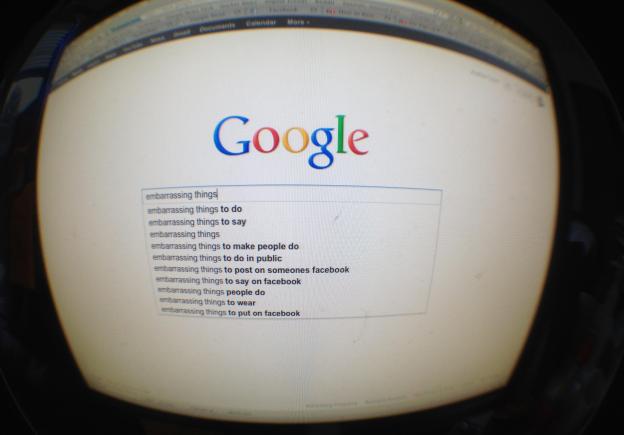
One week from today, March 1, Google’s much-criticized unified privacy policy will go into effect. While there is a great deal of debate over how much (or how little) the new privacy policy will affect users, it’s clear that people are concerned about the search giant’s increasingly thick folders of personal data it stores on each of us. What the policy most certainly does do, however, is makes it so the information Google has is more easily shared across its various services.
One area this is most clear is with search. Our search histories can reveal a lot about us: what we like or dislike, our religion, political leanings, sexual preferences, age, and even health information. As it stands today, all that data collected through searches performed while logged into your Google account has been kept separate from the troves of other data the company has in its coffers. That will all change come next Thursday. Unless, of course, you delete all of it. And here’s how you can do that in less than a minute:
• First, go to google.com/history. There, you’ll be asked to sign into your Google account.
• Second, click the “Remove all Web History” button. And that’s it! You’re done. Not only is all your search data removed from Google’s grasps, but doing this automatically pauses Web History, meaning no more information will be collected until you click the blue “Resume” button at the top of the page.
(Note: If you have more than one Google account, you’ll have to do this whole process for each of them.)
If you want to be less drastic, you can also go through your entire Web History (an activity your author found both intriguing and truly frightening), and pick out the bits and pieces you’d rather Google not know about. You can then simply hit the “Pause” button, and no more search data will be collected.
Please note: This doesn’t not stop Google from collecting all types of information about you. To do that, you’re going to have to go through a lot more steps, many of which the Electronic Frontier Foundation has spelled out here.
One pleasant effect of deleting your Web History is that it does away with much of the bad parts of Google’s personalized Search Plus Your World. To thoroughly eradicate that monstrosity from your life, follow these steps outlined here.
Editors' Recommendations
- How to delete your Gmail account (and what you need to know)
- How to find archived emails in Gmail and return them to your inbox
- How to sync your Outlook Calendar with your Google Calendar
- How to delete or deactivate your Facebook account
- How to drop a pin in Google Maps


